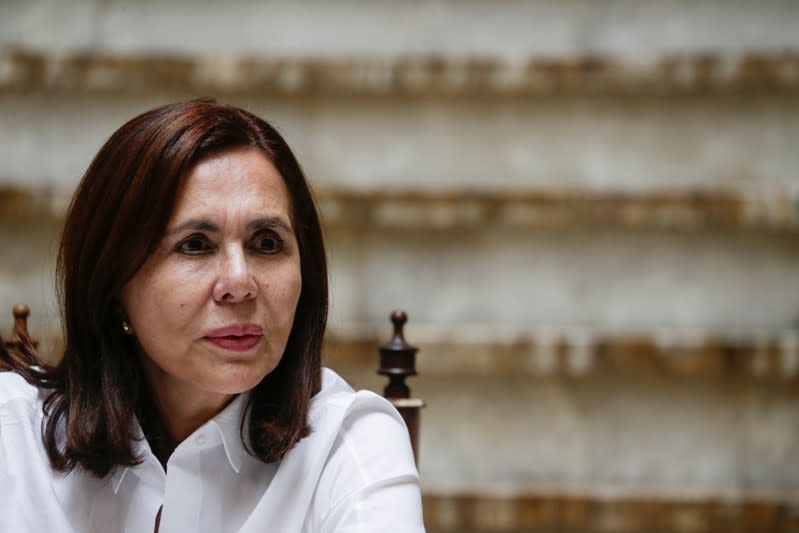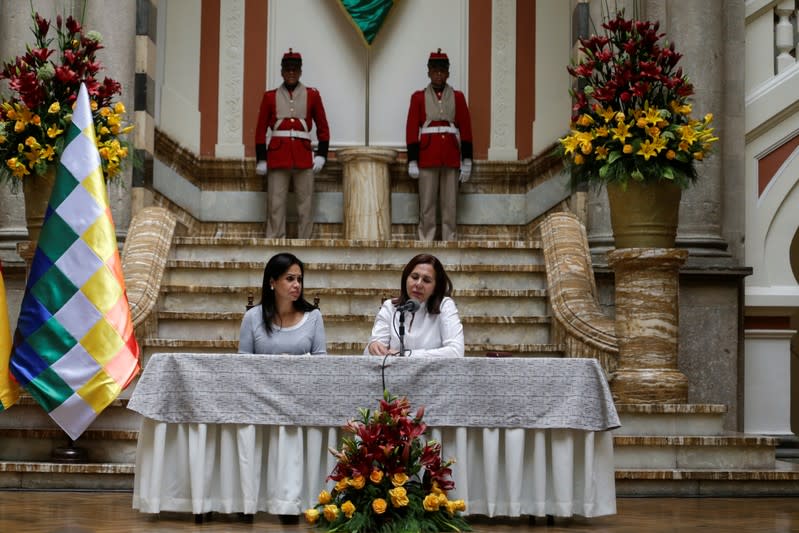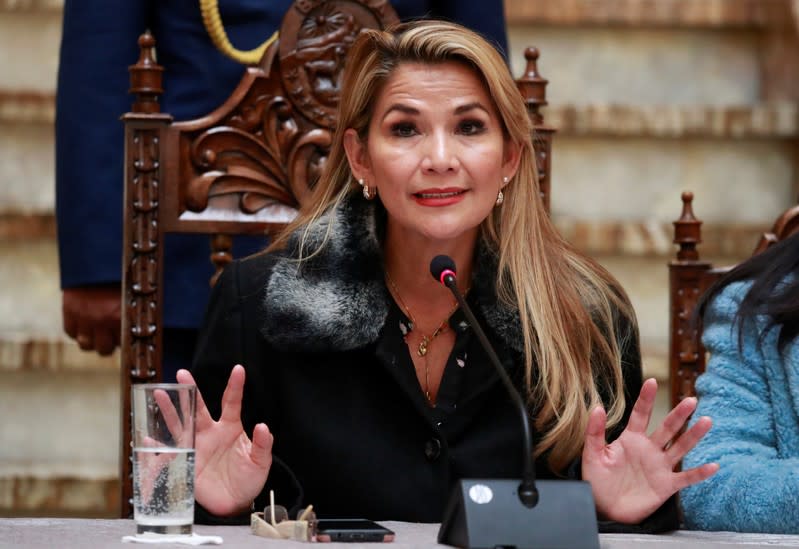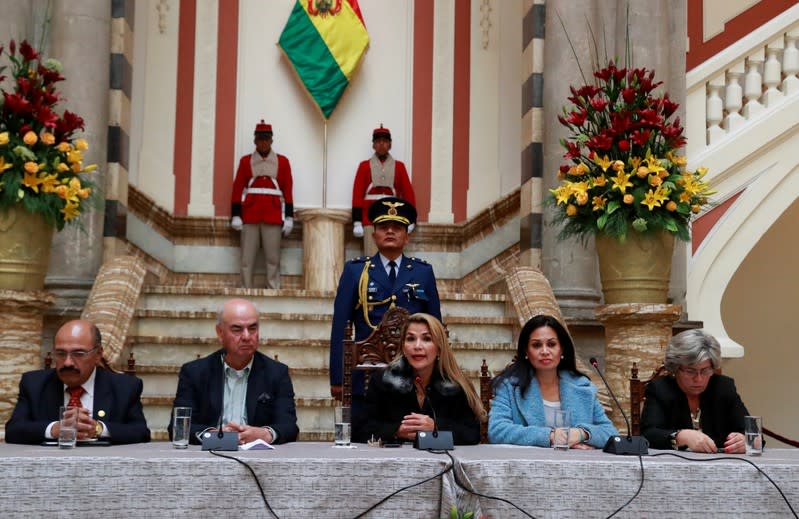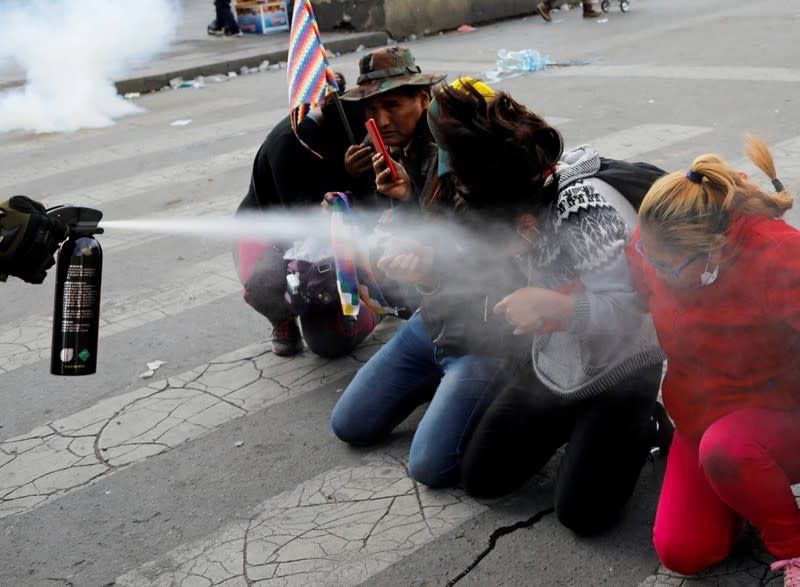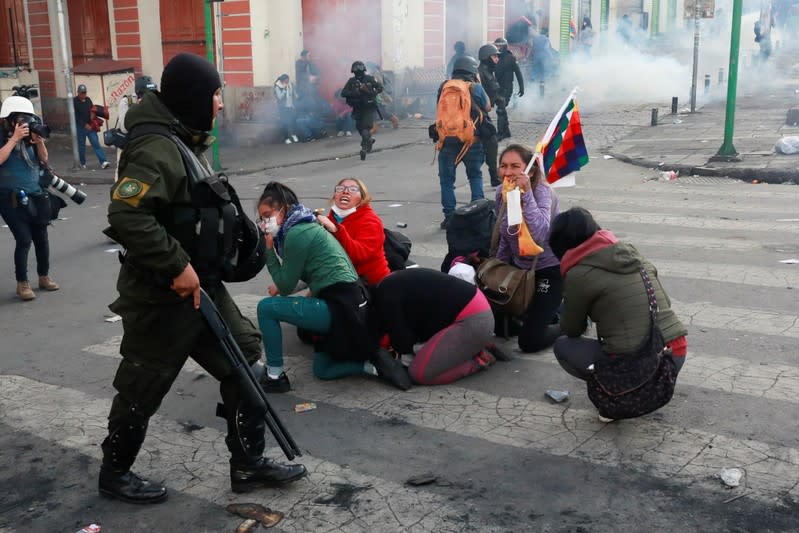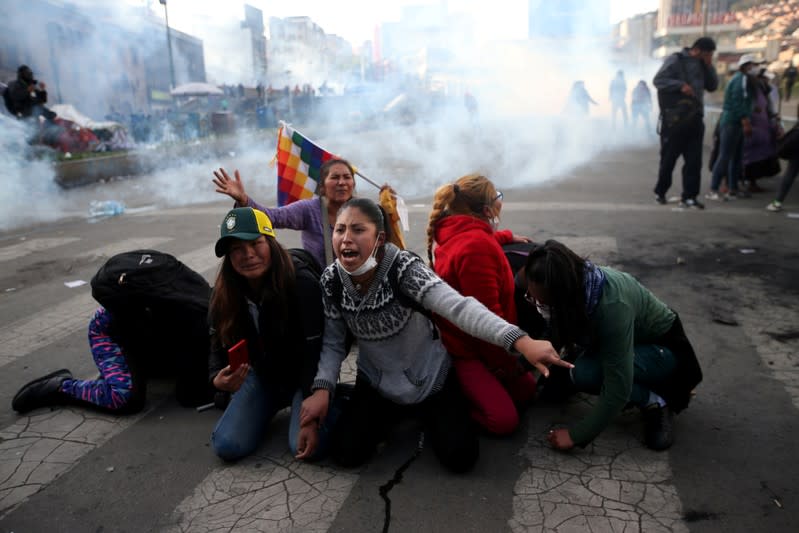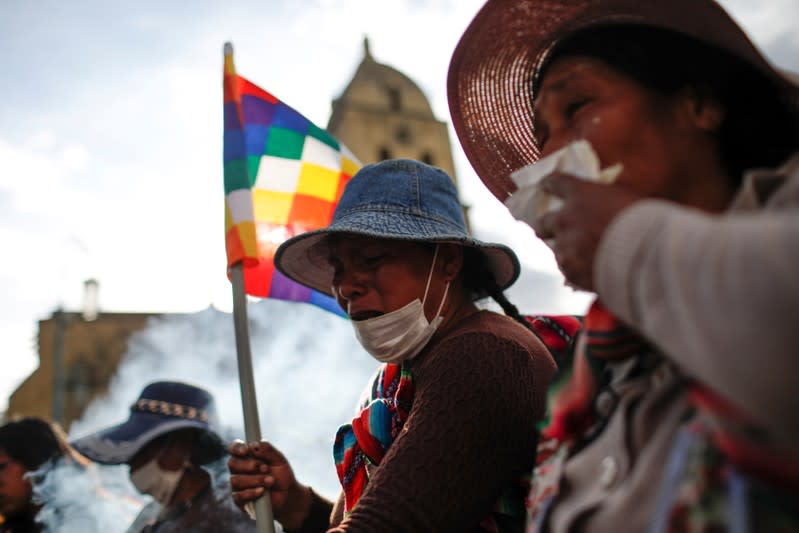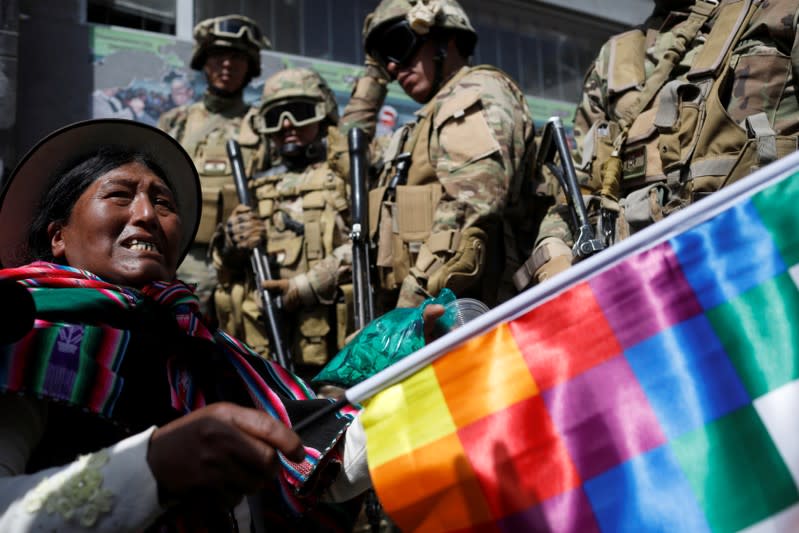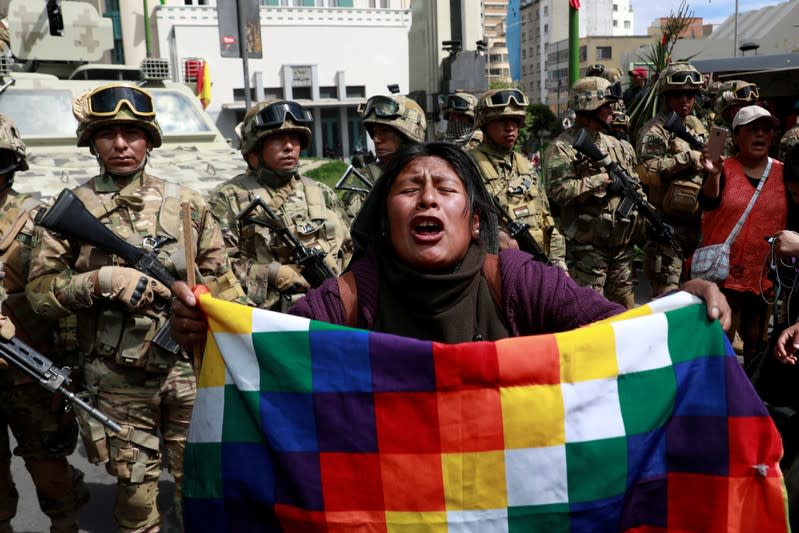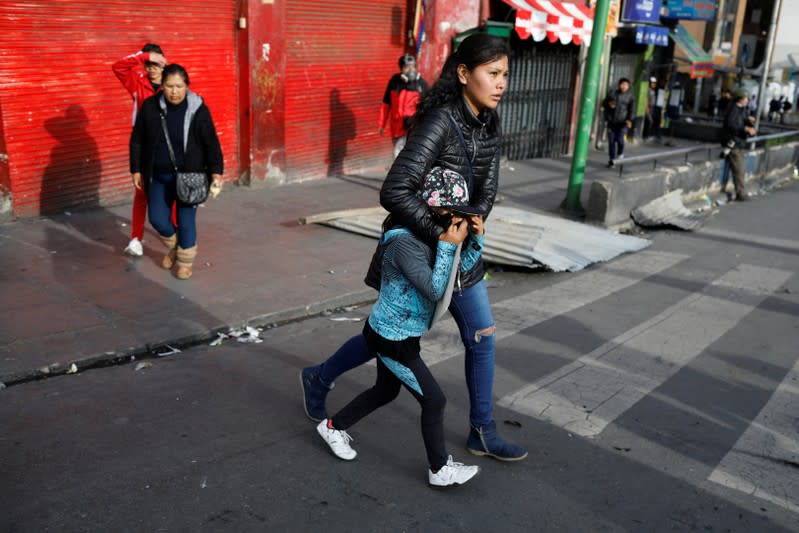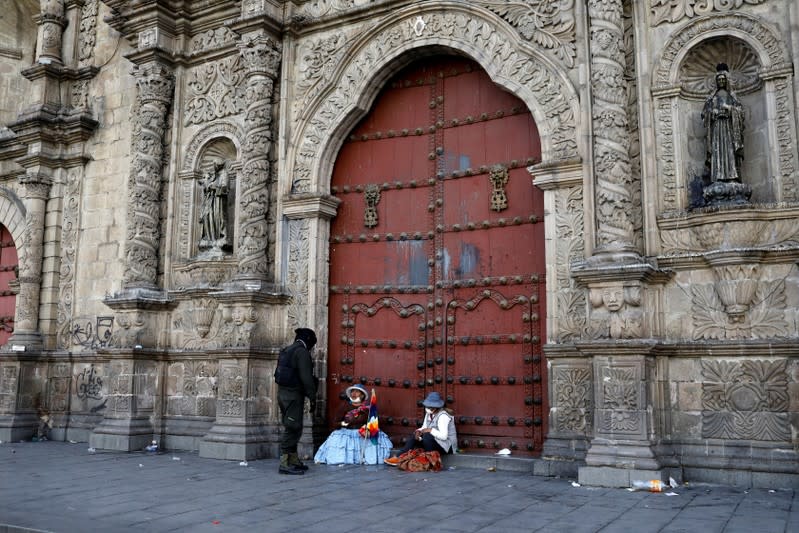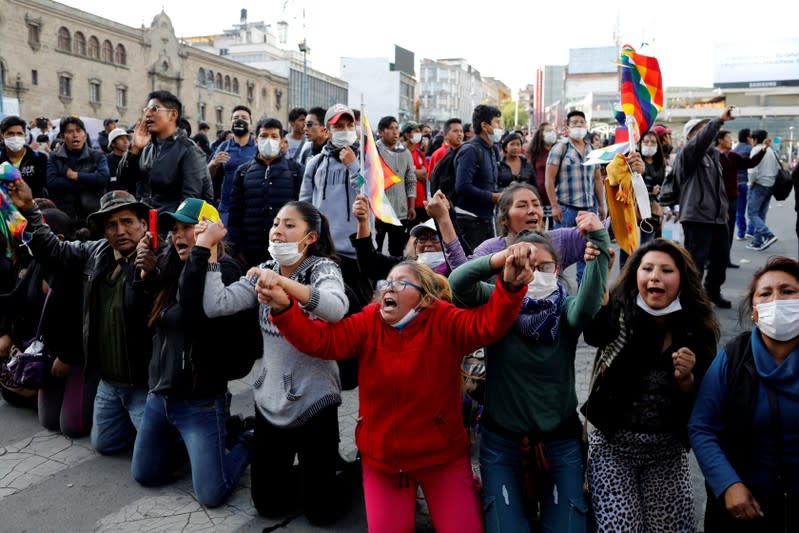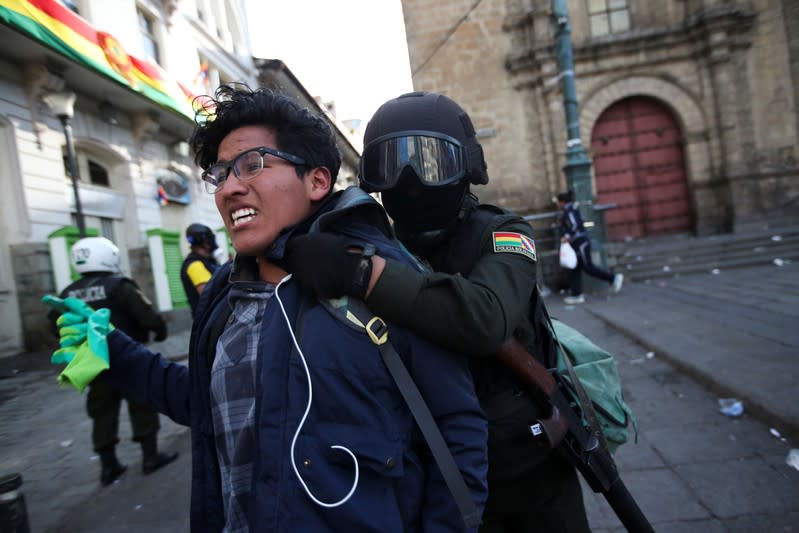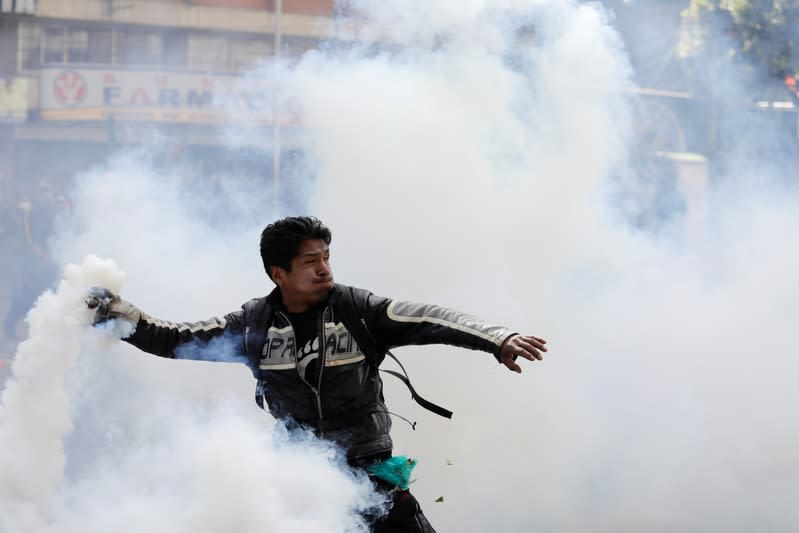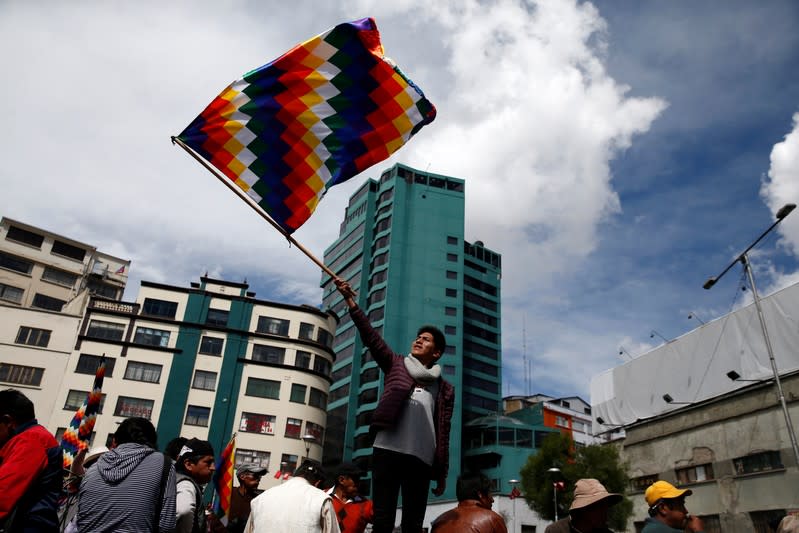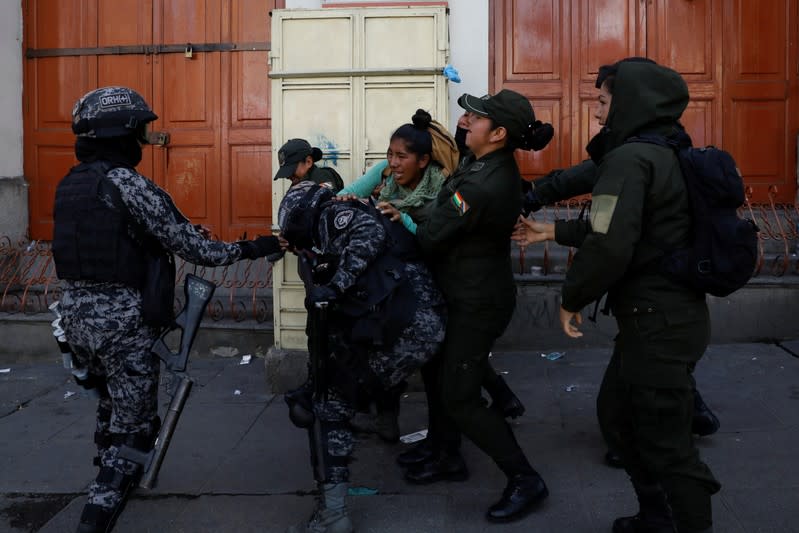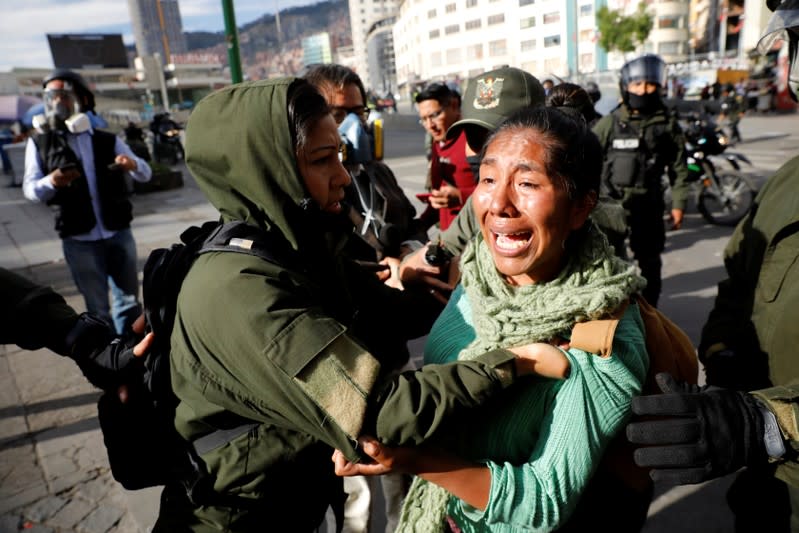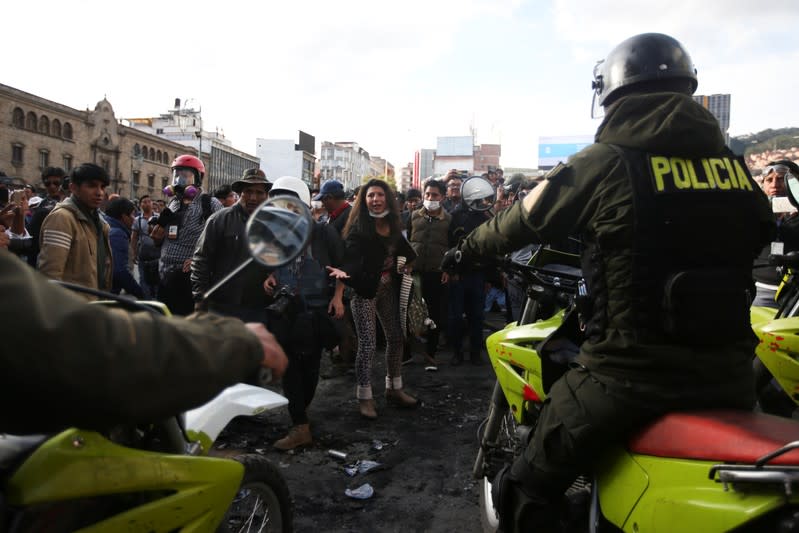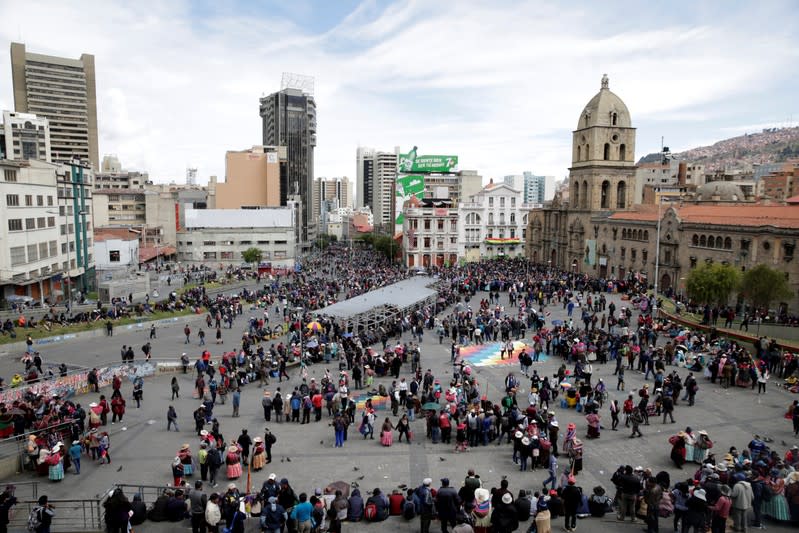Bolivia blames Cubans for stirring unrest, ousts Venezuelan officials
By Daniel Ramos and Gram Slattery
LA PAZ (Reuters) - Bolivia's interim government said on Friday it had asked Venezuelan officials to leave the country, and accused Cubans, including doctors, of instigating unrest after the resignation of former president Evo Morales.
New Foreign Minister Karen Longaric said Cuba would fly home 725 of its citizens, mostly medical doctors, after she raised concerns about their alleged involvement in protests. She said she had also asked all Venezuelan diplomats to leave for similar reasons.
The foreign policy shake-up comes as protests against the four-day-old government of conservative interim President Jeanine Anez roil the country amid Bolivia's biggest political upheaval in over a decade.
Venezuela and Cuba were key allies for leftist Morales, who swept to office as the country's first indigenous president in 2006 and resigned under pressure on Sunday over a disputed Oct. 20 election.
The vote gave him an outright win but was tarnished by allegations of fraud, sparking widespread anti-government protests that often turned violent.
Morales and his vice president fled the country earlier this week to take up an offer of asylum in Mexico. But protests by Morales' supporters have continued in the capital La Paz, nearby El Alto, and the central city of Cochabamba.
In a statement, Cuba's foreign ministry denied its doctors had supported any protests. Venezuela's foreign ministry did not immediately respond to requests for comment.
Both countries have backed Morales' assertion that he was toppled in a foreign-backed coup.
Other countries in the region, including Brazil and Ecuador, have taken similar action against Cubans in recent months.
The Caribbean island nation has a respected health service and generates income by sending more than 50,000 health workers to over 60 countries. Cuba has been accused of mistreating its doctors and pressuring them to take part in political activities, which the country denies.
Police in La Paz fired teargas at protesters on Friday, while schools remained closed and fuel deliveries were disrupted by road blocks.
Local media showed violent standoffs between coca farmers and police in the region of Cochabamba, a stronghold of Morales support.
Bolivia's official ombudsman said at least five people were killed in the town of Sacaba and more than 30 injured on Friday, and it called for an urgent government investigation into the use of force by police and the military.
The ombudsman puts total deaths so far since the October vote at 19, a number which has accelerated over the last week.
The head of the powerful Bolivian Workers' Center (COB) union, Juan Carlos Huarachi, said on Friday that the group was open to dialogue to help stop the bloodshed.
"We are seeing the army and the police mobilized, using tear gas, firing bullets and that worries us," he said, demanding that the government find a route to peace.
The new minister of government, Jerjes Justiniano, said at a press conference that Anez had called an emergency Cabinet meeting to address the violence.
EVO RETURN?
Anez said on Friday that Morales was free to return to Bolivia but would have to respond to allegations of electoral fraud and would not be immune from investigation.
Morales resigned after an Organization of American States audit found electoral irregularities and the military withdrew its backing and urged him to step down to help restore calm.
In the first sign of a potential breakthrough, lawmakers from Morales' party said they reached an agreement with the interim government late on Thursday to work toward a new presidential election.
Anez has said Morales could not be a candidate in that election.
"Nobody has thrown him out, but yes, there's a need for him to respond to accusations of electoral fraud, as well as many allegations of corruption," Anez told reporters at the presidential palace.
Morales told Reuters in an interview in Mexico on Friday that elections could be held without him. But no candidate from his Movement for Socialism (MAS) party has yet emerged to replace him.
Carlos Mesa, the leading challenger to Morales in October's disputed vote, urged Anez to schedule new elections by Sunday.
"It's very important that the international community and the country know she has set a date and time," Mesa was quoted as telling Spanish newspaper El Pais in an interview.
(Reporting by Daniel Ramos and Gram Slattery in La Paz, additional reporting by Sarah Marsh in Havana; Writing by Adam Jourdan and Mitra Taj; Editing by Dan Grebler, Rosalba O'Brien and Daniel Wallis)

